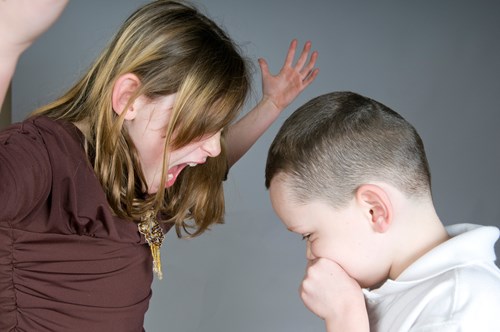All degrees of corporal punishment, which includes hitting, slapping, spanking, yanking arms, or even threats to do any of these things, damage children’s emotional and physical health. The supportive science is well established, as dramatically demonstrated in landmark research by Elizabeth T. Gershoff at The University of Texas at Austin and the stunning results of the groundbreaking Adverse Childhood Experiences Study of Kaiser Permanente and the Centers for Disease Control, and related studies.
Threats of shouting and spanking fail to teach a child the behavior parents want him to learn. In fact, they teach the opposite:
- How to shout
- How to hit
- How to be sneaky
- How to fear
- How to be ashamed
- How to take anger out on others and how to bully
According to the new Policy Statement from the American Academy of Pediatrics (AAP), November 2018, "There appears to be a strong association between spanking children and subsequent adverse outcomes.Reports published since the previous 1998 AAP report have provided further evidence that has deepened the understanding of the effects of corporal punishment. The consequences associated with parental corporal punishment are summarized as follows:
-
corporal punishment of children younger than 18 months of age increases the likelihood of physical injury;
-
repeated use of corporal punishment may lead to aggressive behavior and altercations between the parent and child and may negatively affect the parent-child relationship;
-
corporal punishment is associated with increased aggression in preschool and school-aged children;
-
experiencing corporal punishment makes it more, not less, likely that children will be defiant and aggressive in the future;
-
corporal punishment is associated with an increased risk of mental health disorders and cognition problems;
-
the risk of harsh punishment is increased when the family is experiencing stressors, such as family economic challenges, mental health problems, intimate partner violence, or substance abuse; and
-
spanking alone is associated with adverse outcomes, and these outcomes are similar to those in children who experience physical abuse."
In the conclusion of the Policy Statement, the American Academy of Pediatrics, "recommends that adults caring for children use healthy forms of discipline, such as positive reinforcement of appropriate behaviors, setting limits, redirecting, and setting future expectations. The AAP recommends that parents do not use spanking, hitting, slapping, threatening, insulting, humiliating, or shaming."

